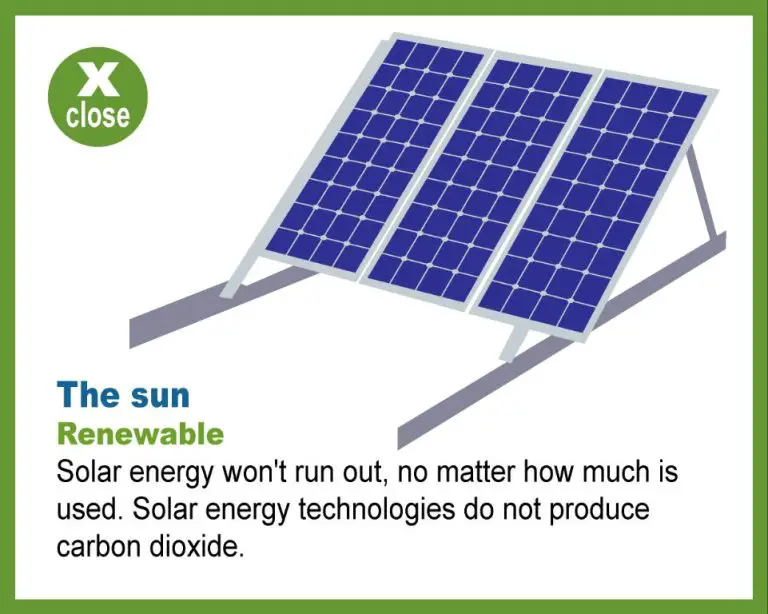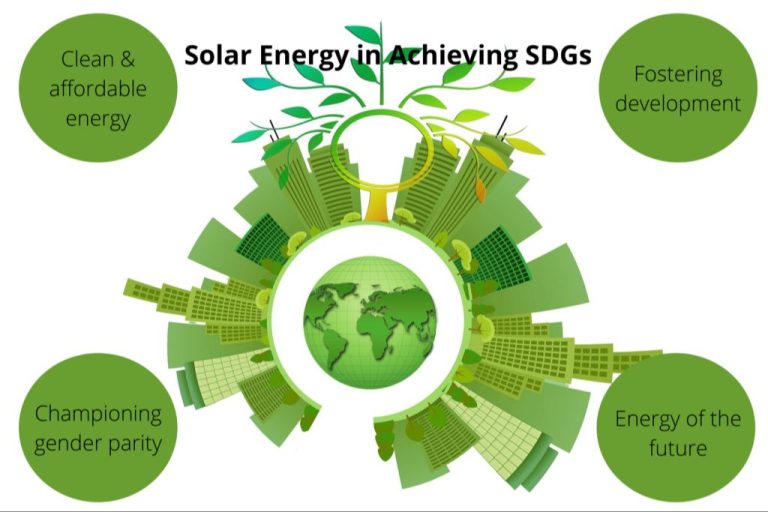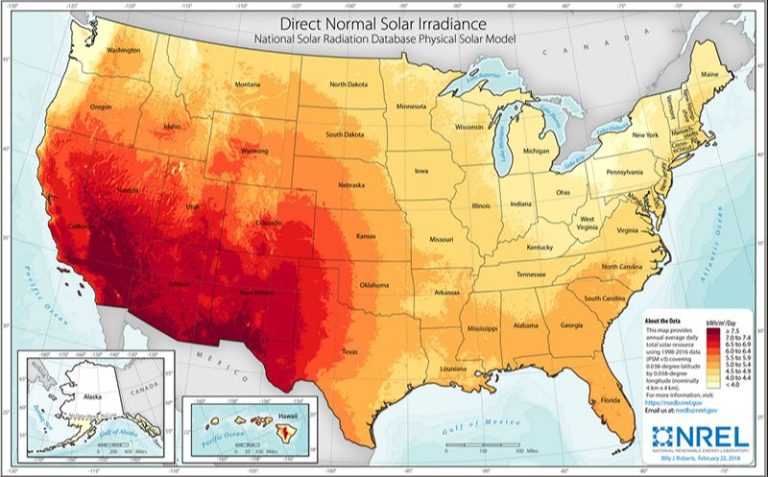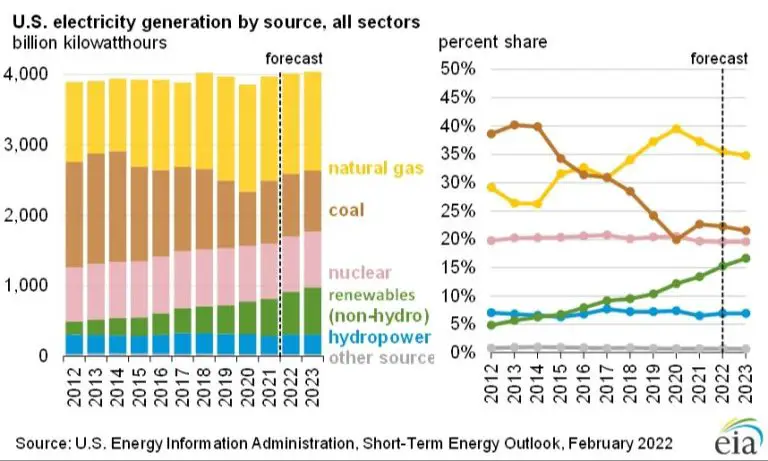Why Is Solar Energy A Viable Alternative Energy Resource?

Solar energy is the radiant light and heat from the sun that is harnessed using technologies like solar photovoltaic panels to generate electricity. In recent years, solar energy has gained significant popularity as an alternative energy resource due to its abundance, renewability, and environmental benefits. The amount of solar energy that reaches the Earth’s surface in one hour could meet the world’s energy demands for an entire year. As solar technologies have improved and costs have declined dramatically, solar energy capacity has grown exponentially to meet rising energy demands while reducing reliance on fossil fuels that contribute to climate change.
According to Greenmatch, the growth rate of solar energy was over 20% in 2021 and global capacity is forecast to grow over 15% annually through 2026. Solar already accounts for 4% of global electricity generation, and some projections estimate it could supply up to 40% of global energy demands by 2060. As solar energy technology, infrastructure, and adoption continue to advance and expand, it is positioned to play a major role in powering a clean energy future.
Abundant & Renewable
The sun provides an endless supply of solar energy. The sun beams down a tremendous amount of energy – around 10,000 times more than the world’s energy needs – on the earth every day [1]. Solar energy is considered renewable because it comes from a virtually inexhaustible fuel source – the sun. A benefit of solar power is that we will never run out of it, unlike non-renewable fossil fuels such as coal and natural gas. As long as the sun continues to shine, solar energy will be abundantly available.
Reduces Reliance on Fossil Fuels
One of the major benefits of solar energy is that it reduces reliance on finite fossil fuel resources like coal, oil, and natural gas. As energy demand continues to grow globally, relying solely on fossil fuels is not sustainable. Fossil fuel reserves are limited and will eventually run out if current consumption levels persist. Solar energy provides a renewable alternative that can help meet energy needs now and long into the future. According to the U.S. Energy Information Administration, fossil fuels accounted for about 80% of total U.S. energy consumption in 2019 (citation). Transitioning more energy production to solar would significantly decrease fossil fuel demand. Widespread solar adoption is critical for building a more sustainable energy system.
Lowers Electricity Costs
Solar energy systems can help lower electricity bills for homeowners and businesses. As studies have shown, increasing solar energy generation leads to lower wholesale electricity prices. When solar energy enters the grid during peak demand hours, usually midday, it reduces the amount of electricity that needs to be produced from fossil fuel plants. This extra solar supply drives down wholesale electricity prices. Homeowners and businesses with rooftop solar systems benefit from lower electricity bills because their systems offset the more expensive grid electricity during peak hours. The more solar capacity added to the grid, the greater the impact on peak electricity prices. For example, regions with high solar penetration like California and Texas have seen decreasing peak wholesale electricity prices as solar capacity has grown. Widespread rooftop solar adoption can put meaningful downward pressure on peak pricing, directly benefiting solar homeowners through lower monthly utility bills.
Improves Energy Security
Local solar energy production improves energy security by reducing reliance on imported fossil fuels and protecting against supply disruptions. Research shows that embracing solar power enables countries and communities to take control of their energy needs and become more self-sufficient. Solar panels installed on homes, businesses, and government buildings generate electricity locally, reducing the need for long-distance transmission lines and centralized power plants. This distributed model spreads out energy production and makes the grid less vulnerable to disruptions. If an event disrupts the main grid, solar panels can provide backup power to maintain critical operations. By harnessing the abundant power of the sun, solar energy allows communities to gain energy independence and shield themselves from unpredictable energy markets and supply shocks.
Creates Jobs
Solar energy creates a significant number of domestic jobs in areas like installation, manufacturing, sales, and more. According to the Solar Jobs Census from The Solar Foundation, there were over 250,000 solar jobs in the United States in 2021, representing a 7.4% increase over 2020 numbers. Most of these solar jobs are centered around installation, with over 150,000 employed in this sector alone. Solar is proving to be a rapidly growing source of new jobs in the alternative energy sector.
The manufacturing of solar components and materials is another major employer, providing over 37,000 jobs in 2021. Additional solar jobs exist in sales, distribution, project development, and more. These domestic solar jobs provide employment and help drive the economy. With solar energy capacity expanding every year, the Solar Jobs Census predicts strong continued job growth in the coming years.
Reduces Pollution
One of the biggest benefits of solar energy is that it generates electricity without emitting greenhouse gases or other pollutants. Solar panels produce power without releasing carbon dioxide, sulfur dioxide, nitrogen oxides, or mercury into the atmosphere (https://www.dynamicslr.com/environmental-benefits-of-solar-energy/). This makes solar a much cleaner alternative to fossil fuels like coal and natural gas, which contribute significantly to air pollution when burned to produce electricity. Widespread adoption of solar power would help reduce smog, acid rain, and pollution-related health problems. Solar energy systems require virtually no ongoing emissions once installed, meaning they can operate pollution-free for decades.
Scalable
One of the advantages of solar power is that it can be scaled easily to meet energy demand. Small residential solar panel installations can generate power for a single home. On the other end of the spectrum, utility-scale solar farms with thousands of panels can produce energy for thousands of homes. According to a study from the National Renewable Energy Lab, the technical potential for solar power in the United States is nearly 100 times the nation’s current electricity production [1]. This demonstrates the immense scalability of solar technology. With its modular nature, solar power can be fitted to nearly any space or energy need, from a few kilowatt rooftop system to a multi-megawatt solar plant. The scalability of solar energy is a key advantage that makes it a versatile renewable energy solution.
Technological Improvements
Solar technology is rapidly improving in efficiency and cost. In the past decade alone, solar panels have become much more efficient at converting sunlight into electricity. According to Sistine Solar, solar cell efficiency has improved from 15% to over 22% in recent years. Manufacturing processes like PERC and bifacial solar panels have boosted efficiency. Enhancements in inverters, trackers, and software also contribute to overall system performance.
Industry experts predict continuing advancements in solar technology and efficiency. For example, Palmetto notes that by incorporating more silicon into solar cells and making other improvements, efficiency could reach 29% in the next 5-10 years. With these ongoing innovations, solar energy will become an even more cost-effective renewable electricity source.
Conclusion
In conclusion, solar energy is a viable and rapidly growing alternative energy resource for several key reasons. Firstly, solar energy is abundant and renewable. The sun provides more energy to the earth in one hour than the world uses in an entire year. Solar technology allows us to harness this endless clean energy source.
Secondly, solar energy reduces our reliance on polluting fossil fuels like coal, oil and natural gas. Widespread adoption of solar power lessens the need for extracting and burning dirty fuels that harm our environment. Solar offers a clean and sustainable energy alternative.
Furthermore, solar energy lowers electricity costs once installed, providing decades of free energy from the sun. This saves consumers and businesses money over time. Solar energy also improves energy security by decentralizing energy production, allowing people to generate their own power.
In addition, solar creates many jobs in manufacturing, installation and maintenance. The solar industry is growing rapidly as the technology improves and prices fall. Solar energy is also scalable – it can be installed in small systems for homes or large utility-scale solar farms.
Lastly, continual improvements in solar technology and efficiency are being made through R&D and innovation. Costs are becoming increasingly competitive with fossil fuels. Solar energy has proven itself as a mainstream energy source that will play a major role in the world’s clean energy future.







